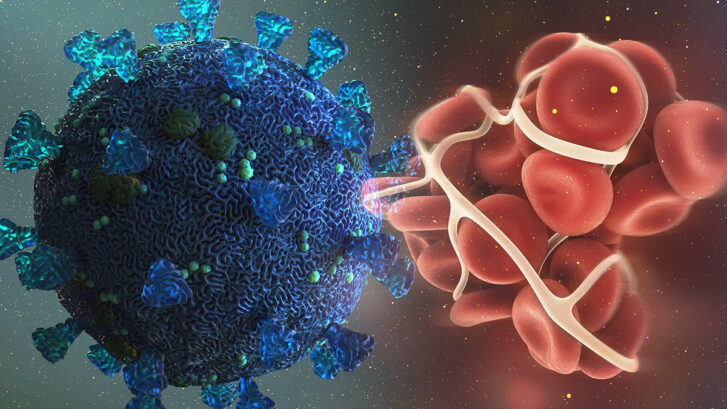You may have heard many COVID-19 patients requiring anticoagulation therapy.
This may have left you wondering the need for the same in a viral infection. After all, COVID-19 affects your lungs, correct? So, what is the need for anticoagulants?
Well, after continued research on COVID-19, experts now believe that the viral condition does more harm than just affecting your respiratory system. In some patients, the virus is also seen to affect the vascular system, resulting in vascular disorders.
The reason for this extensive damage is the virus’ ability to attach cells with specific receptors (angiotensin-converting enzyme-2). The cells with these receptors are widespread such as the nose, lungs, kidneys, digestive system, heart, and blood vessels. So, the virus can attack any cell it attaches itself to.
The COVID-19 virus can affect blood vessels in the mentioned two ways:
- Affecting blood vessels lining various organs such as the heart, kidneys, and lungs
- Increasing the tendency of blood to clot
Cause Of Hypercoagulation in COVID-19
The virus can trigger the release of inflammatory chemicals (cytokines), resulting in an inflammatory reaction. A higher level of these chemicals is an increased risk factor for clot formation (thrombosis).
Once the process of clot formation begins, a self-sustaining reaction initiates, stimulating the formation of other clots. However, the intensity of hypercoagulative stress differs in every patient. The doctor runs a couple of tests, including D-dimer, to understand the severity.
Symptoms
Indications of increased coagulation depend on the location of clot formation. For instance, a blood clot in the heart may result in a heart attack.
Some common symptoms include:
- A severe, unusual headache
- Chest pain
- Breathlessness
- Discomfort in the upper part of your body
- Dizziness
- Slurred speech or other speech changes
- Paralysis on one or both sides of the body
The Need for Anticoagulation Therapy
Anticoagulants are an excellent option to manage the increased tendency of a clot in COVID-19 patients. In most cases, low-molecular-weight heparin is the first-line treatment in these patients. It is given subcutaneously once or twice a day. Whether to hospitalize the patients to treat them depends on other factors such as other diseases or elderly patients.
Some other anticoagulants include:
- Warfarin
- Heparin
- Fondaparinux
Each anticoagulant needs a different route of administration, and the doctor will advise on the same if the patient is not hospitalized. The doctor may also suggest some blood tests to understand the effect of the medicines.
Conclusion
The awareness about the importance of anticoagulation therapy in COVID-19 is low. Experts believe that the patients receiving anticoagulation treatment have a better outcome than those not receiving it. However, the need may vary for different patients, and the treating doctor may decide the need for anticoagulants based on tests and other risk factors.


